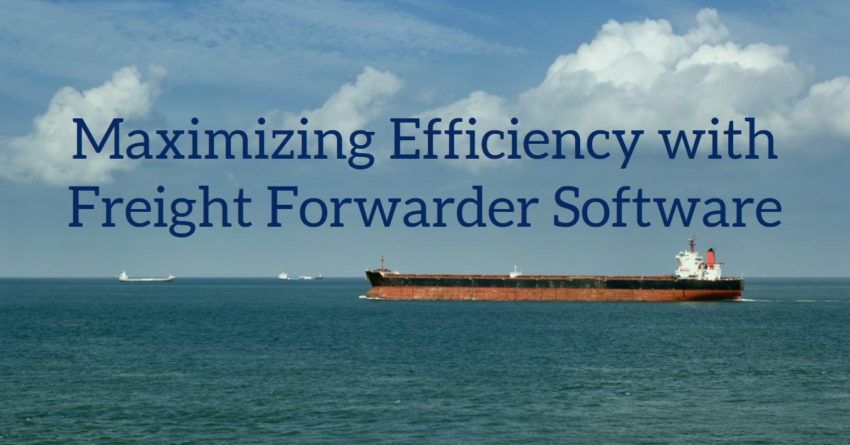In today’s fast-paced global economy, efficient logistics management is crucial for businesses engaged in international trade. Freight forwarders play a vital role in facilitating the movement of goods across borders, but managing the complexities of freight forwarding operations can be challenging. Fortunately, advancements in technology have led to the development of specialized software solutions tailored to the needs of freight forwarders. In this comprehensive guide, we’ll explore the world of freight forwarders software, its key features, benefits, and how it can revolutionize your logistics operations.
Understanding Freight Forwarders Software
Freight software is a specialized type of logistics management software designed to streamline and optimize the various processes involved in freight forwarding. These solutions are specifically tailored to meet the unique needs and challenges faced by freight forwarding companies, including managing multiple shipments, coordinating with carriers and customs authorities, tracking shipments in real-time, and ensuring compliance with regulatory requirements.
Key Features
- Automated Documentation: One of the most critical features of freight software is its ability to automate the generation and management of documentation. From bills of lading to customs forms, these solutions can streamline the paperwork involved in international shipping, reducing the risk of errors and ensuring compliance with regulations.
- Real-Time Shipment Tracking: Visibility is essential in logistics management, and freight software offers real-time tracking capabilities that allow users to monitor the status and location of shipments throughout the entire transportation process. This visibility enables proactive decision-making, reduces the risk of delays, and enhances customer satisfaction.
- Integration with Carriers and Suppliers: Effective communication and collaboration with carriers, suppliers, and other stakeholders are crucial for successful freight forwarding operations. Freight software often integrates with carrier systems and other third-party platforms, facilitating seamless data exchange and improving overall efficiency.
- Customs Compliance: Navigating the complexities of customs regulations and documentation can be a daunting task for freight forwarders. Freight forwarders software simplifies this process by providing tools for managing customs documentation, automating compliance checks, and ensuring adherence to regulatory requirements, thereby minimizing the risk of delays and penalties.
Benefits of Freight Forwarders Software
- Improved Efficiency: By automating repetitive tasks, streamlining processes, and providing real-time visibility into shipments, freight software helps companies operate more efficiently. This improved efficiency translates into cost savings, faster delivery times, and enhanced customer satisfaction.
- Enhanced Accuracy: Manual data entry and paperwork can lead to errors and inaccuracies, which can result in delays and compliance issues. Freight forwarders software eliminates these risks by automating data entry, reducing human error, and ensuring the accuracy of documentation and records.
- Cost Savings: Inefficient logistics operations can incur unnecessary costs through delays, errors, and inefficiencies. Freight software helps companies identify and eliminate these inefficiencies, leading to cost savings across the supply chain.
- Scalability: As businesses grow and evolve, their logistics needs may change. Freight forwarders software is highly scalable, allowing companies to adapt and expand their operations without significant disruptions or additional infrastructure investments.
Choosing the Right Freight Forwarders Software
When selecting a freight forwarders software solution for your business, it’s essential to consider several factors, including your specific requirements, budget, and scalability needs. Look for a solution that offers robust features, user-friendly interface, and excellent customer support. Additionally, consider whether the software integrates seamlessly with your existing systems and whether it provides the flexibility to accommodate future growth and changes in your business needs.
Conclusion
Freight forwarders software plays a crucial role in optimizing logistics operations for businesses engaged in international trade. By automating processes, improving visibility, and ensuring compliance, these solutions help companies operate more efficiently, reduce costs, and enhance customer satisfaction. When choosing a freight software solution for your business, carefully evaluate your requirements and consider factors such as features, scalability, and integration capabilities. With the right software in place, you can maximize efficiency and unlock the full potential of your freight forwarding operations.
Also know Revolutionizing Logistics: The Ultimate Guide to Freight Scheduling Software

